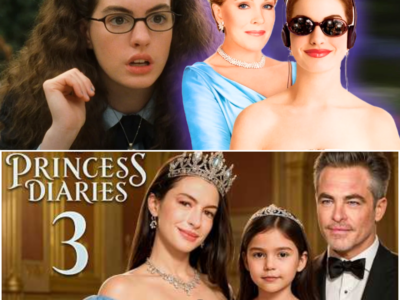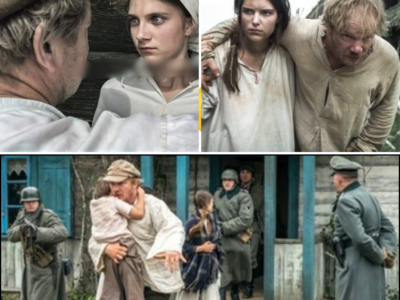Jodie Foster, a name synonymous with cinematic brilliance, has spent nearly six decades in the spotlight, evolving from a child star to a two-time Oscar-winning actress and an acclaimed director. Yet, despite her global fame, Foster has consistently maintained a guarded approach to her personal life. In a revealing statement at a Radcliffe Day event at Harvard in May 2025, she encapsulated her philosophy: “I always try to keep some parts of my life completely private. Cinema is how I communicate with the world, but it’s not all of me.” This declaration offers a window into Foster’s lifelong struggle to balance her public persona with her private self, a theme that has defined her career and personal journey. This article explores Foster’s relationship with privacy, her use of cinema as a medium of expression, and how she continues to navigate fame while protecting the parts of herself that remain off-limits. 😊🎥
A Childhood in the Public Eye
Foster’s journey in Hollywood began at the tender age of three, when she appeared in a Coppertone commercial. Born Alicia Christian Foster on November 19, 1962, in Los Angeles, she was the youngest of four children raised by her single mother, Brandy, after her parents’ divorce before her birth. With her mother managing her career, Foster quickly became the family’s breadwinner, starring in Disney films like Freaky Friday (1976) and earning an Oscar nomination for her role as a teenage sex worker in Martin Scorsese’s Taxi Driver (1976). Her early roles showcased a preternatural emotional depth, but they also thrust her into a world where privacy was a luxury she could scarcely afford.
Growing up in the public eye came with significant challenges. In 1981, during her freshman year at Yale, Foster faced a traumatic ordeal when John Hinckley Jr., obsessed with her after watching Taxi Driver, attempted to assassinate President Ronald Reagan to impress her. The incident forced her into hiding, requiring round-the-clock security and disrupting her college life. Reflecting on this period at the Radcliffe event, Foster described it as a “trial by fire,” noting that it taught her harsh lessons about trust: “Now you can trust no one.” This experience solidified her determination to carve out a private space, even as her career continued to soar with Academy Award-winning performances in The Accused (1988) and The Silence of the Lambs (1991).
The Dichotomy of Public and Private
Foster’s statement—“I always try to keep some parts of my life completely private”—is not a new sentiment but a recurring theme throughout her life. In a 2016 interview with The New York Times, she discussed her carefully scripted 2013 Golden Globes speech, where she accepted the Cecil B. DeMille Award and addressed her sexuality, saying, “I already did my coming out about a thousand years ago.” While some interpreted this as a public acknowledgment of her being gay, Foster clarified that her focus was on privacy, not a traditional coming-out moment. “Everything I have to say on that subject, I said that night. I can be vague. Vague is moving to me,” she told the outlet, emphasizing her reluctance to discuss her personal relationships, including her marriage to Alexandra Hedison in 2014 and her role as a mother to two sons, Charles and Christopher, from her previous relationship with Cydney Bernard.
This desire for privacy stems from a deep need to protect those she loves. “There are only so many steps I can take to protect people I love. It’s kind of a horrible feeling to know that if somebody’s close to you, you put them in danger of being hurt, of being sullied—just by virtue of knowing you,” Foster explained in the same interview. Her protective instincts extend to her family, whom she shields from the media frenzy that has often surrounded her. This stance was further highlighted in a 2024 Atlantic article, where she expressed her lifelong struggle to be understood while maintaining a gap between her public and private selves: “For somebody who is interested in privacy, I am obsessed with being understood.”
Cinema as a Conduit for Connection
While Foster guards her personal life, she channels her emotions and experiences into her work, as reflected in her statement, “Cinema is how I communicate with the world, but it’s not all of me.” Her filmography is a testament to this approach, often featuring characters who are emotionally isolated or under pressure—mirroring her own experiences of navigating fame. From Clarice Starling in The Silence of the Lambs, a young FBI agent facing a cannibalistic killer, to Ellie Arroway in Contact (1997), a scientist searching for extraterrestrial life, Foster has consistently played women who defy categorization, much like herself.
Her directorial projects also reflect this personal connection. In a 2017 interview with The Guardian, Foster noted, “As a director, I have always wanted every movie I have made to be in some way the story of my life. Otherwise, how am I supposed to commit to it?” Her work on Money Monster (2016), a thriller about financial corruption, allowed her to explore her own fears and questions, weaving them into the characters’ narratives. Similarly, her recent role in Vie Privée (A Private Life), a French-language film that premiered at the 2025 Cannes Film Festival, showcases her ability to connect through cinema. Playing Lilian Steiner, an American psychoanalyst in Paris investigating a patient’s death, Foster spoke entirely in French, a language she’s been fluent in since childhood. The film’s title, A Private Life, resonates with her own values, as it explores the tension between public facades and inner truths.
A New Chapter in French Cinema
Foster’s role in Vie Privée marks a significant milestone—her first leading role in a non-English-language film. At Cannes, she told Variety, “I’m a different person in French than I am in English,” highlighting the transformative nature of the experience. The film, a psychological thriller with comedic elements, allowed Foster to “loosen up,” as noted by The Hollywood Reporter, which praised her ability to portray a character who shifts from controlled to impulsive and emotional. This role also reflects her growing sense of freedom as she ages. “I feel a lot freer,” she said at Cannes, adding that turning 60 has brought a new contentment to her career: “There’s a freedom.”
Her collaboration with French director Rebecca Zlotowski and co-star Daniel Auteuil brought a nostalgic charm to the project, blending genres in a way Foster appreciates about European cinema. “Studios in the U.S. want a film to be either a thriller or a comedy—they don’t want a mixture of the two,” she told Reuters at Cannes. “In Europe, directors have more authority.” This creative freedom aligns with Foster’s desire to express herself authentically through her work, even as she keeps her personal life out of the spotlight.
Navigating Fame and Legacy
Foster’s career is a testament to her resilience and versatility. She has won two Academy Awards, a Primetime Emmy for True Detective: Night Country (2024), and received an Honorary Palme d’Or at Cannes in 2021. Yet, she remains a reluctant celebrity. In a 2021 New York Times interview, she admitted, “Celebrity culture was a big culprit—I couldn’t stand what that was,” explaining her reduced visibility in recent years. Her focus has shifted toward meaningful projects, such as The Mauritanian (2021), where she played a lawyer defending a Guantanamo Bay prisoner, earning a Golden Globe.
Her legacy also includes her role as a trailblazer for the LGBTQ community, though she has been cautious about taking on a public advocacy role. At the Radcliffe event, she expressed pride in facilitating greater acceptance but admitted, “My No. 1 concern was surviving intact, emotionally and intellectually.” This survival required “a kind of emotional safety and privacy that was unusual for the film business,” a balance she continues to strike as she navigates her later years in the industry.
Conclusion
Jodie Foster’s statement—“I always try to keep some parts of my life completely private. Cinema is how I communicate with the world, but it’s not all of me”—encapsulates a life spent balancing the demands of fame with a fierce commitment to privacy. Through her roles and directorial work, she has shared profound pieces of herself, from the isolated women she portrays to the personal fears she explores on screen. Yet, she remains an enigma, protecting her family and personal relationships from public scrutiny. As she continues to evolve, as seen in her recent French-language role in Vie Privée, Foster proves that cinema can be a powerful medium for connection—on her own terms. At 62, she is not just a Hollywood icon but a woman who has mastered the art of being seen while keeping the most sacred parts of herself hidden, a delicate dance that ensures her legacy endures both on screen and in the private life she holds dear. 🌟🎭


